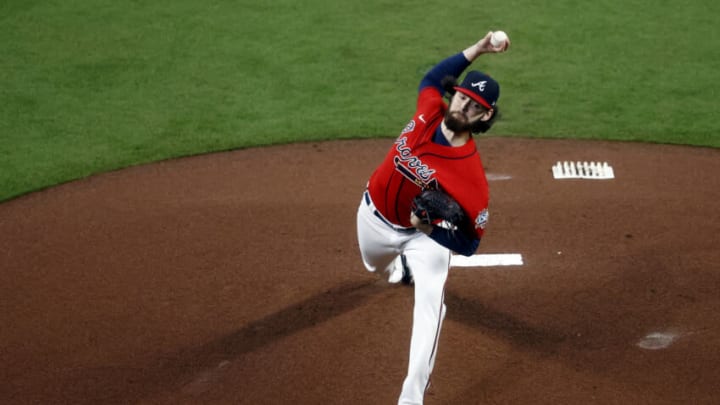After Game 3 win, Atlanta Braves critics are pearl-clutching this morning

This is not about that
Glavine threw 109 pitches that night in 1995 — a night I once described as his “signature game” en route to a Hall of Fame membership card. In his case, there were 67 strikes and 42 balls… and anyone who knows Glavine’s game knows that of those 42 balls, probably 30 of them were fractions of an inch away from either being (a) called a strike; or (b) swung at in vain.
That’s not quite how Ian Anderson’s outing went on Friday night.
Anderson was almost at 50/50 on his balls and strikes — and that includes pitches flailed at that were clearly out of the strike zone (but that’s part of his game with the changeup).
But should any of this suddenly make writers leap to the conclusion that major league starting pitching is broken and needs to be fixed?
If might be, but this isn’t Exihibit A to bring to the attention of the Court of Public Opinion.
I, for one, would love to see starters routinely going 6-to-8 innings at a pop. It demonstrates skills and durability that (yes) we haven’t seen since the early 1990’s when 4-man rotations were still common and starters would go to the post for 200-230 innings per year.
But Ian Anderson was removed from this particular game for other reasons:
- In his career, Anderson has now made 38 starts… counting 8 in the post-season.
- His longest outings ever? 7 innings (5 times), with just 3 of those allowing no runs
- This was the fifth time he’s started a playoff game while giving up no runs (interestingly, the Dodgers are the only team that has ever scored off of him in the post-season).
- Twice in the playoffs, Anderson has pitched into the 6th inning
- Two other times — including last night — he’s made it through exactly 5.
During NLCS Game 2 last year, Snitker removed Anderson after just 4 innings of 1 hit ball against those Dodgers… even as they hadn’t scored on him then. The reason? 85 pitches and 5 walks.
Last night, though the no-no was still intact, Anderson had allowed 4 base-runners via 3 walks and a hit batsman through 5 innings and 76 pitches.
It was effective, but not particularly elegant.
Besides, it’s being almost universally acknowledged that a full 9-inning no-no wasn’t going to happen… given that, the Braves needed to make the move and the time of their best advantage.
Even Ken Rosenthal admitted this (which kinda unraveled his own point):
"Snitker said, quite accurately, “He wasn’t going to throw a nine-inning no-hitter.”"
Snitker did make the move. It worked for the Braves. But Snitker was likely not thinking about his or Anderson’s future legacy when removing Anderson.